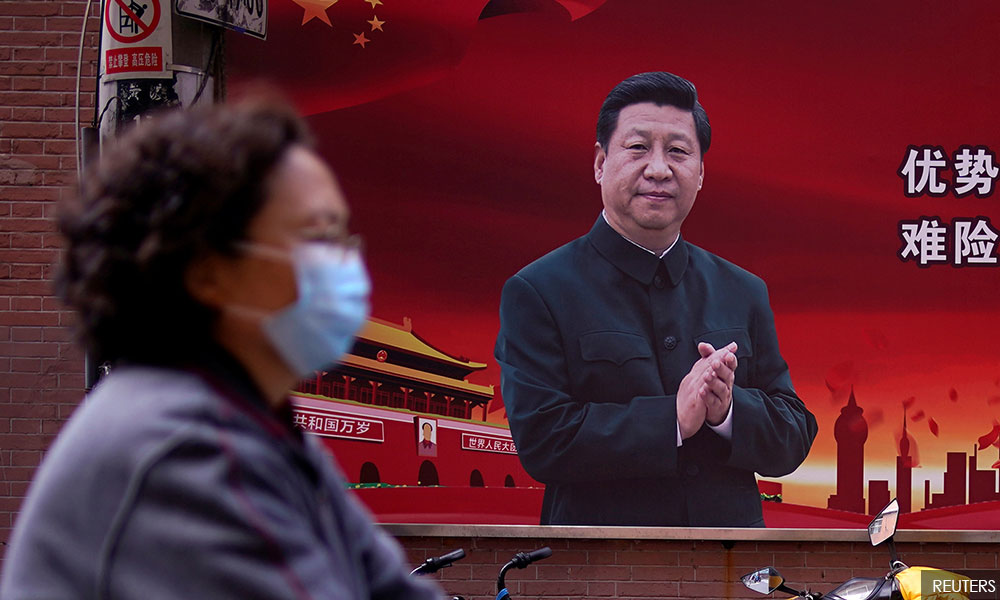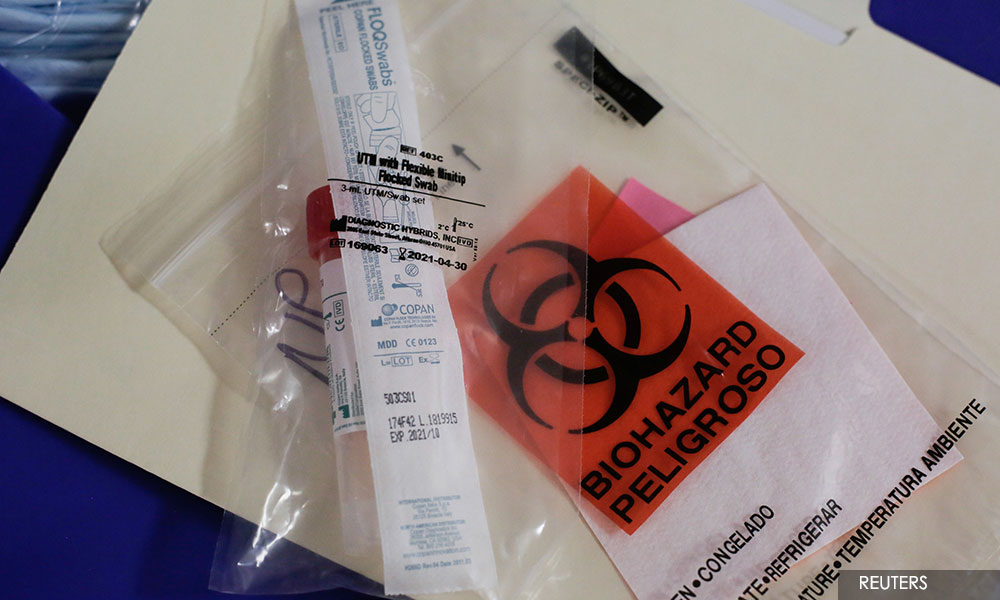COMMENT | As this is written, China has placed the Covid-19 pandemic in Wuhan under control, if not the whole of the country. This is quite a feat for a population of 1.3 billion, that has only begun its serious lockdown of Wuhan, a city in Hubei province.
China, arguably, should be complimented. But how China is praised should also be done in a spirit of critical scholarship. In other words, where there were flaws in China's earlier responses, China's shortcomings should be flagged.
Only in this way can one understand the extent to which China can save the world or not, Malaysia included, granted that China is embarking on an ambitious global health diplomacy to help various countries "flatten the curve".
First of all, China has done a good job of quarantining its population between January 23 and the end of March. But one should remember it was Wuhan alone that was in full lockdown, followed by other provinces but not the entire country.
For lack of a better word, a lockdown is most effective when there is a localised outbreak of Covid-19, not a blanket nationwide outbreak. To a degree China can advise countries on how to deal with a localised rather than a nationwide outbreak, then China has begun the steps to be a real actor in the world.
Barring the understanding of this refined approach, countries with an authoritarian streak will go berserk in imposing a nationwide lockdown by pointing to China as an example. The result is a lose-lose proposition. The lessons of China are lost, and the world careens into an authoritarian dark hole.
Secondly, China has taken an attitude to dismiss a huge hoard of conspiracy theories that this was the act of some bio weaponry warfare to attack the growing economic clout of China. A conspiracy theory that is credible, although concurrently incredulous too. If Covid-19 was launched by the West, the latter should be standing. It is not. Covid-19 has now ricochetted to hit the US and members of the European Union (EU) especially Spain and Italy, not to mention the United Kingdom and France, very seriously too.

China can save the world if the leadership in Beijing focuses on solving the problem of Covid-19, now globalised across the world, rather than to fan its own society into a frenzy of why the West has tried to pull the carpet from under the feet of China once again. So far, while Chinese social media has not stopped speculating on a biological war from the West, it is admirable that Chinese leadership has not indulged in it.
Thirdly, China has indeed released the genome of Covid-19 as early as the third week of January to allow scientists from around the world to study the genome of Sars-Cov-2, the virus that triggers the sickness of Covid-19, but somehow the disconnect between the scientists and the decision-makers in the West, especially the latter, has delayed a robust response.
However, having praised China, it is vital that one holds China to account for not alerting the World Health Organisation (WHO) of the serious nature of the Wuhan outbreak. When historians look back at the start of the pandemic in 2020, many scholars will wonder why wasn't China alerting the world to the dangers posed by this outbreak as early as November 2019?
Indeed, if only China allowed Taiwan to speak up, either in WHO, or, Hong Kong, both of which have had the experience of sending and seeing the seriousness of the Sars outbreak in 2002, the world would have taken this problem more seriously, especially if Dr Helen Chan, the former director-general of WHO, who had handled Sars successfully been allowed to be the key person to speak of the danger. Yet to this day, Chan, having retired from WHO has retained a reticent approach. She did not explain why the pandemic was not flagged earlier to the rest of her medical colleagues across the world.
Moreover, some of the test kits with which China had sent to the EU, or, imported by various countries, had not been brought to book by Chinese authorities themselves. Even the rapid test kits offered by China to Malaysia proved unreliable, which consequently forced the hand of the Health Ministry to start the process all over again by getting them from South Korea according to Health Director-General Dr Noor Hisham Abdullah.
China can save the world if China takes not only an altruistic approach to send frontline medical workers abroad, but to do a serious audit of its own shortcomings, in other words, to find "truths from facts" as the late Deng Xiao Ping, China's Paramount leader, has always advocated.
Covid-19 strikes a world where denial, deceit and deception are the primes. When countries refused to test, treat and trace their patients aggressively, which Malaysia is doing, to defeat Covid-19, the lack of truths across the world starting with China will lead to a severe data deficit to understand the scientific treatments that can be best deployed.

China can also save the world by explaining why it closed its borders on the rest of the world, only to ask various countries to keep them open. Such as urging the likes of Vietnam, South Korea and Cambodia, at one stage, to maintain their business as usual. It is only lately that China has encouraged various countries to shut down their societies to break the vector of transmission.
For the lack of a better word, China can save the world, just as China has saved itself, by doing a proper historical, indeed scientific audit, as to why the pandemic began in China only to quickly disseminate to the rest of the world in less than two to three months.
The West and the whole of Asia have to do their own honest accounting too, without which they too will wallow in a pandemic that will become endemic. China can save the world, nonetheless, by setting a good example of establishing the scientific time of their first cases, which some Chinese doctors have done by publishing in medical journals. But it helps for the Chinese leadership to speak up as to why they allowed the Chinese scientists to warn their fellow colleagues across the world instead of the Chinese leaders themselves.
Meanwhile, as of yesterday, globally the number continues to soar - 1,000,036 infections have been reported with 51,178 deaths, according to an AFP tally.
In Malaysia, the tally stands at 3,116 infections with 50 deaths. What is worrying for Malaysia is that some experts have predicted that the spread will peak in mid-April, at the end of the second phase of the movement control order (MCO). Are we looking at a third extension of the MCO to break the transmission chain?
RAIS HUSSIN is is the president/CEO of EMIR Research, an independent think tank focused on strategic policy recommendations based on rigorous research.
The views expressed here are those of the author/contributor and do not necessarily represent the views of Malaysiakini.
Keep up with the latest information on the outbreak in the country with Malaysiakini's free Covid-19 tracker.

